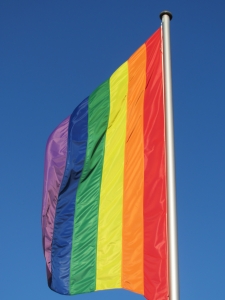With the Supreme Court recently declaring that marriage is a constitutionally protected right, and that same-sex couples have a right to marry in every state in the Union, it would be easy for people think that gay rights organizations have won and there is nothing left to fight for of equal urgency and importance. While this was a huge victory for supporters of gay marriage, it is not the only area in which same-sex couples and members of the gay community were subject to discrimination.
 Employment is one area where there is still a great deal of discrimination against gay employees and gay job applicants, and, according to a recent article in the San Francisco Chronicle, many LGBT activists have already begun gearing up for the next big challenge of fighting discrimination in the workplace.
Employment is one area where there is still a great deal of discrimination against gay employees and gay job applicants, and, according to a recent article in the San Francisco Chronicle, many LGBT activists have already begun gearing up for the next big challenge of fighting discrimination in the workplace.
Mark Leno, the first openly gay individual to serve in the California state senate, was one of the primary supporters of legalizing gay marriage throughout the nation. He says he and his supporters will celebrate this huge win for civil rights, but they will be getting back to work soon, because there is much left to be done.
Leno first made headlines when he sponsored the first marriage equality in bill in state history in 2004. This was a bill that was vetoed by then-governor Arnold Schwarzenegger. The bill was reintroduced the following year, and again Schwarzenegger vetoed the law.
Leno now says that, once the hurdle of gay marriage has been cleared, how can we let these same individuals be denied employment and fair treatment in the workplace?
As our Orange County employment attorneys can explain, despite this landmark Supreme Court decision, discrimination will continue in the workplace until the legislature really gets serious about the problem. There are a variety of different types of discrimination, including discrimination against LGBT workers, but also against people based upon age, gender, national origin, disability and a variety of other reasons. Some of these categories of discrimination are what the courts consider an act of discrimination against a protected class, and others are not.
For example, if someone discriminates against an employee because of his or her age, this is considered discrimination against a protected class, and courts will interpret the alleged discrimination acts in the narrowest manner allowed. In other words, it will be up to an employer to justify why their conduct was not discriminatory, and they will need to show how it was narrowly tailored to achieve a legitimate and specific goal. This is very hard to do, so there is a decent chance the employee discriminated against can prevail.
However, discrimination cases require additional litigation compared to many other matters, and there are various procedural challenges, which must be overcome in order for a plaintiff to succeed. The most important thing you can do if you believe your employer has discriminated against you is to speak with an experienced employment attorney as soon as possible to learn whether or not you have a valid claim. It is also helpful to keep a record of any discrimination in the workplace, so you can present this to your attorney, who can use it as evidence during any hearing or trial, if necessary.
Contact the employment attorneys at Nassiri Law Group, practicing in Orange County, Riverside and Los Angeles. Call 949.375.4734.
Additional Resources:
After marriage, LGBT activists prepare for next challenge, June 27, 2015, SF Chronicle
More Blog Entries:
McNaughton v. Charleston Charter School – Winning a Wrongful Termination Case, Feb. 7, 2015, California Employment Lawyer Blog
 Orange County Employment Lawyers Blog
Orange County Employment Lawyers Blog

